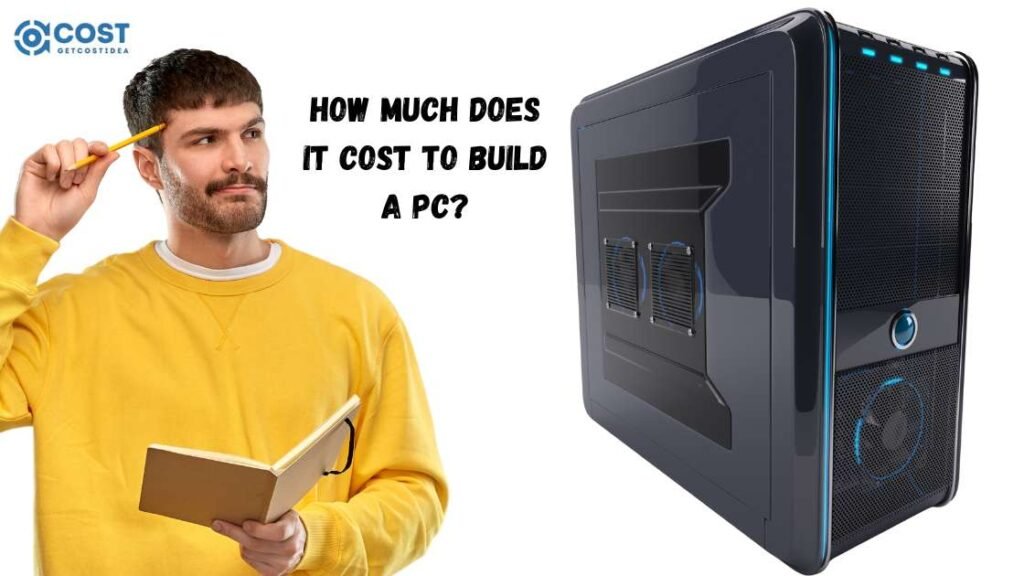Building a PC can cost between $300 and $2,000, depending on components. Budget builds are cheaper, while high-end builds are pricier.
Building a custom PC allows for tailored performance to suit various needs, from gaming to professional tasks. The cost varies widely based on the choice of hardware like CPU, GPU, RAM, and storage. Entry-level PCs for basic tasks might cost around $300 to $500.
Wondering how much does it cost to build a PC? Mid-range systems for gaming or content creation can range from $700 to $1,200. High-end PCs with top-tier components can exceed $2,000. Investing in quality parts ensures better performance and longevity. Careful planning and research help select the best components within your budget.
Introduction To Pc Building
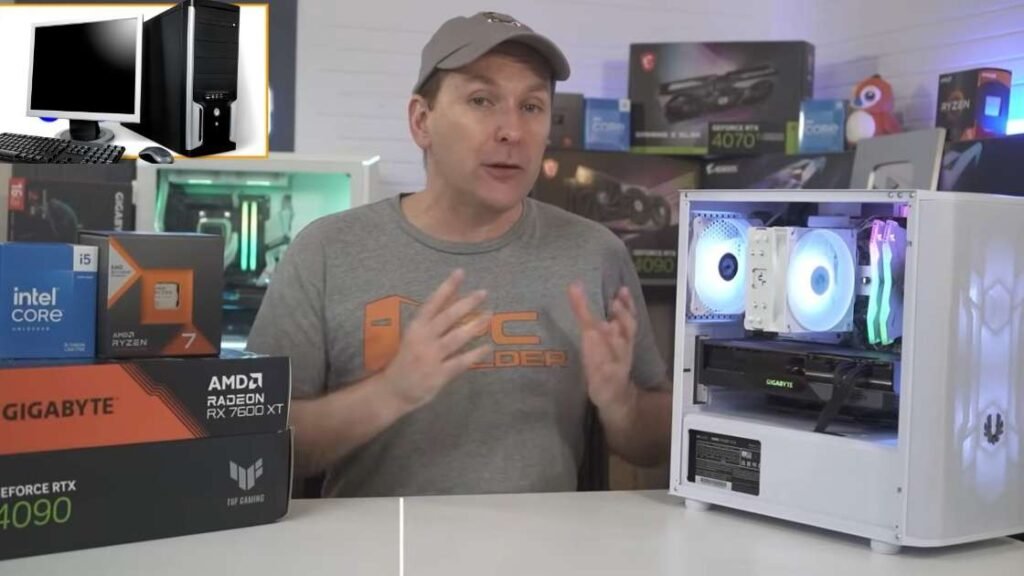
Building your own PC can be a rewarding experience. It allows you to customize your machine for your specific needs. Many people find this process fun and educational. You can also save money by building a PC yourself.
Why Build Your Own Pc?
Building your own PC has several benefits:
- Customization: You can choose every part of your PC.
- Performance: Select parts that offer the best performance.
- Cost-Effective: Often cheaper than pre-built PCs.
- Learning Experience: Gain valuable tech knowledge.
Cost Factors To Consider
Several factors affect the cost of building a PC. Here are the main ones:
| Component | Estimated Cost |
|---|---|
| Processor (CPU) | $100 – $500 |
| Graphics Card (GPU) | $150 – $1000 |
| Memory (RAM) | $50 – $200 |
| Storage (SSD/HDD) | $50 – $200 |
| Motherboard | $70 – $300 |
| Power Supply (PSU) | $50 – $150 |
| Case | $50 – $150 |
| Cooling System | $30 – $100 |
| Peripherals (Keyboard, Mouse) | $20 – $200 |
These are just estimated costs. Prices can vary based on brands and models.
Building a PC involves selecting parts that fit your budget and needs.
Choosing A Processor
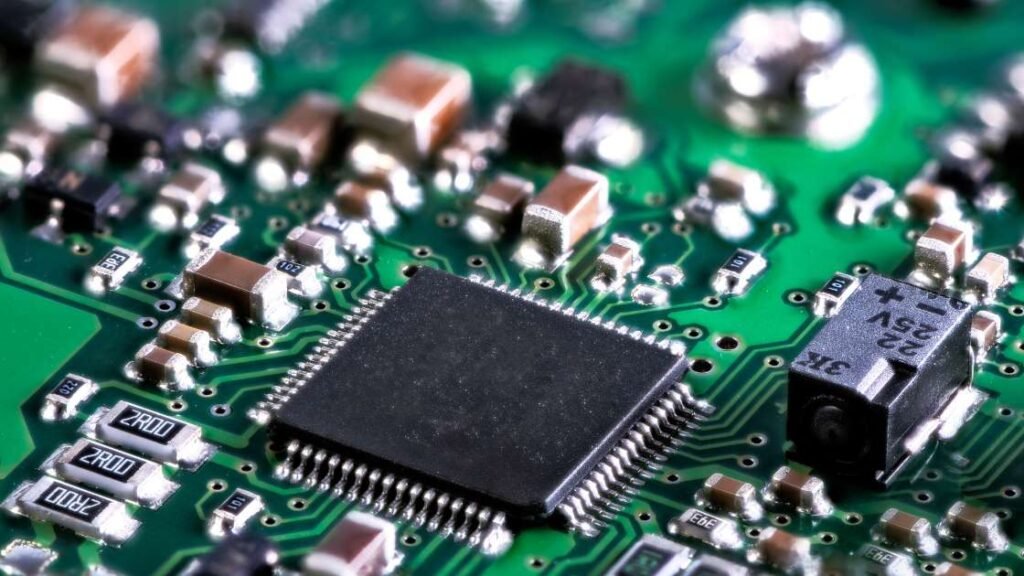
Choosing a processor is a crucial step in building a PC. The processor, or CPU, is the brain of the computer. It handles all the hardware and software instructions. Different processors have different capabilities and costs. Let’s explore the options.
Intel Vs. AMD
Two main companies make processors: Intel and AMD. Both have their strengths and weaknesses. Intel processors are known for their performance and reliability. They are often used in professional and gaming PCs. AMD processors are known for their value and multi-core performance. They offer great performance at a lower cost.
| Feature | Intel | AMD |
|---|---|---|
| Performance | High | High |
| Price | Higher | Lower |
| Core Count | Lower | Higher |
Budget Options
If you are on a budget, there are options for you. AMD Ryzen 3 and Intel Core i3 are great budget processors. They offer good performance for everyday tasks and light gaming. Here are some budget-friendly options:
- AMD Ryzen 3 3200G – Great for basic tasks and light gaming.
- Intel Core i3-10100 – Good for office work and casual gaming.
- AMD Athlon 3000G – Perfect for very tight budgets.
Selecting A Graphics Card
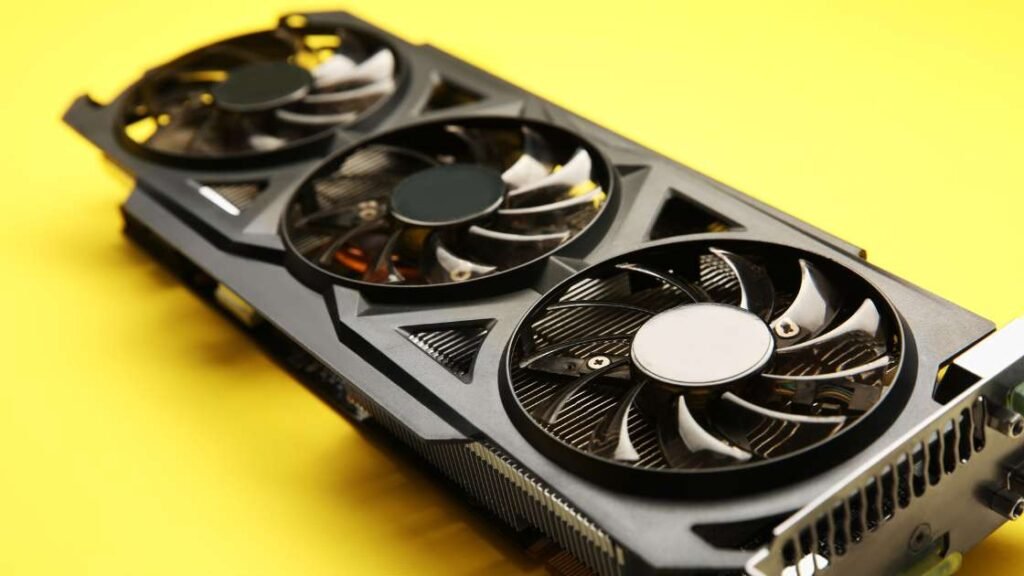
Choosing the right graphics card is crucial for any PC build. It affects gaming, video editing, and other tasks. A good graphics card ensures smooth performance and better visuals. Below, we’ll explore performance vs. price and the best GPUs for gaming.
Performance Vs. Price
Balancing performance and price is key. Some cards offer high performance but come at a steep cost. Others may be more affordable but lack power. High-end GPUs provide exceptional performance but can be expensive. Mid-range GPUs offer good performance at a reasonable price. Budget GPUs are cheaper but may struggle with demanding tasks.
| Category | Performance | Price Range |
|---|---|---|
| High-end GPUs | Exceptional | $700 – $1500 |
| Mid-range GPUs | Good | $300 – $600 |
| Budget GPUs | Basic | $100 – $250 |
Best GPUs For Gaming
Choosing the best GPU for gaming depends on your needs. NVIDIA GeForce RTX 3080 is great for high-end gaming. AMD Radeon RX 6800 XT offers excellent performance for less. For a mid-range option, the NVIDIA GeForce RTX 3060 Ti is a solid choice.
- NVIDIA GeForce RTX 3080: High-end gaming, $699
- AMD Radeon RX 6800 XT: Great performance, $649
- NVIDIA GeForce RTX 3060 Ti: Mid-range, $399
Budget gamers may consider NVIDIA GeForce GTX 1660 Super or AMD Radeon RX 5500 XT. These offer decent performance for less. Selecting the right GPU ensures your PC meets your gaming needs.
- NVIDIA GeForce GTX 1660 Super: Budget-friendly, $229
- AMD Radeon RX 5500 XT: Affordable, $199
Picking The Right Motherboard

Choosing the right motherboard is crucial for building a PC. The motherboard connects all components and affects performance. Below are key points to consider.
Form Factors
Motherboards come in different sizes, known as form factors. The most common form factors are ATX, Micro-ATX, and Mini-ITX.
| Form Factor | Dimensions | Expansion Slots |
|---|---|---|
| ATX | 305mm x 244mm | 7 |
| Micro-ATX | 244mm x 244mm | 4 |
| Mini-ITX | 170mm x 170mm | 1 |
ATX motherboards are large and offer many features. Micro-ATX is smaller but still powerful. Mini-ITX is compact, and ideal for small builds.
Essential Features
Consider essential features for your needs. These include the number of RAM slots, PCIe slots, and USB ports.
- RAM Slots: More slots allow for more memory modules.
- PCIe Slots: Needed for graphics cards and other expansions.
- USB Ports: More ports offer better connectivity.
Check for built-in Wi-Fi and Bluetooth if needed. Ensure the motherboard supports your chosen CPU socket type.
Understand the motherboard’s chipset. This affects compatibility and features. High-end chipsets offer advanced features. Budget chipsets focus on essential functions.
Picking the right motherboard ensures your PC performs well. It supports all your components and offers room for upgrades.
Memory And Storage Options
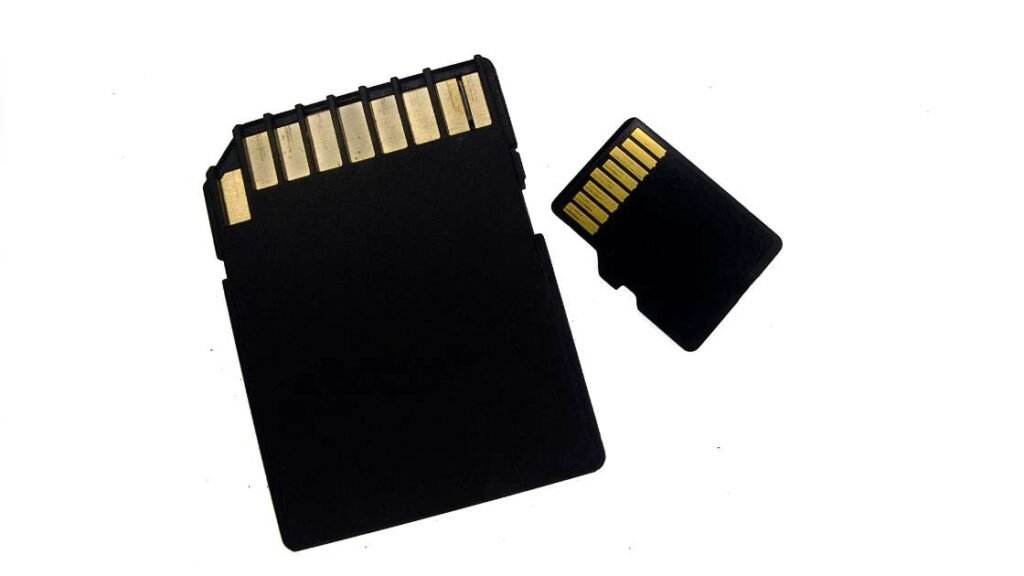
Building a PC involves choosing the right components for your needs. One crucial area is memory and storage. These components affect your PC’s speed and performance. Let’s explore the options available.
Ram: How Much Do You Need?
RAM stands for Random Access Memory. It helps your computer run multiple tasks at once. The amount of RAM you need depends on what you do. Here’s a simple guide:
- 4GB: Basic tasks like web browsing.
- 8GB: Good for casual gaming and multitasking.
- 16GB: Ideal for gaming and professional work.
- 32GB: Best for heavy tasks like video editing.
More RAM makes your computer faster. But too much RAM can be wasteful. Choose based on your needs.
SSD Vs. Hdd
Storage options include SSD (Solid State Drive) and HDD (Hard Disk Drive). Both have their pros and cons:
| Feature | SSD | HDD |
|---|---|---|
| Speed | Faster | Slower |
| Price | More expensive | Cheaper |
| Durability | More durable | Less durable |
| Storage Capacity | Less capacity | More capacity |
SSDs make your system boot faster. They also improve load times for applications. HDDs offer more space for your money. They are good for storing large files. Many people use both: an SSD for the system and an HDD for storage.
Power Supply And Cooling
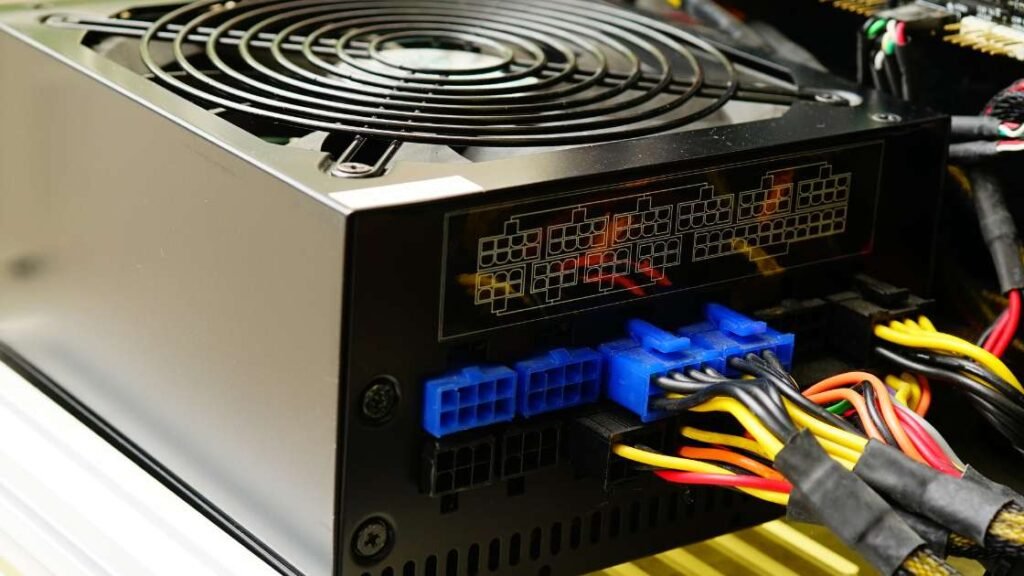
Choosing the right power supply and cooling system is crucial. It ensures your PC runs smoothly and efficiently. This section will guide you through the essentials of power supply and cooling.
Calculating Power Needs
First, you need to determine the power requirements of your components. Each part of your PC consumes a different amount of power. Here’s a simple way to calculate your power needs:
| Component | Estimated Power Consumption (W) |
|---|---|
| CPU | 65-125 |
| GPU | 150-300 |
| Motherboard | 50-100 |
| RAM | 2-5 per stick |
| Storage (HDD/SSD) | 5-10 each |
| Fans | 2-5 each |
Add up the power consumption of all components. This gives you a rough estimate of the total power needed. It’s wise to choose a power supply with at least 20% more wattage than your total estimate. This ensures your system has enough power during peak loads.
Cooling Solutions
Proper cooling keeps your PC components from overheating. There are two main types of cooling solutions:
- Air Cooling: This uses fans and heat sinks. It’s affordable and easy to install. Most CPUs come with a stock cooler, but aftermarket coolers perform better.
- Liquid Cooling: This uses water to absorb heat. It’s more efficient but also more expensive. Liquid cooling is ideal for high-performance and overclocked systems.
Both cooling solutions have their pros and cons. Choose based on your budget and performance needs. Ensure your case has good airflow. This helps to dissipate heat effectively.
Case And Accessories
Choosing the right case and accessories for your PC is crucial. This impacts both functionality and aesthetics. Let’s delve into the essentials of picking the perfect case and accessories for your build.
Choosing The Right Case
The case is the foundation of your PC build. It holds all components together. A good case ensures proper airflow and cable management. Here are some factors to consider:
- Size: Ensure the case fits your components.
- Cooling: Look for cases with good ventilation and fan slots.
- Build Quality: Choose a sturdy and durable case.
- Design: Pick a design that suits your style.
Prices for cases can vary. Basic cases start at $30, while premium ones can exceed $150. Choose one that fits your budget and needs.
Additional Peripherals
Peripherals enhance your PC experience. They include keyboards, mice, and monitors. Let’s break down these essential accessories:
- Keyboard: Mechanical or membrane. Mechanical keyboards cost more but offer better feedback.
- Mouse: Opt for a gaming mouse if you play games. Prices range from $10 to $100.
- Monitor: Choose a monitor based on resolution and refresh rate. Prices can range from $100 to $600.
Other accessories can include:
- Headsets: Essential for gamers and video calls.
- Speakers: For better audio experience. Prices vary greatly.
- Webcams: Important for video conferencing.
These peripherals add to the overall cost but enhance your PC’s functionality.
Estimating Total Costs
Building a PC can be a fulfilling experience. But understanding the costs is crucial. Different builds cater to different needs and budgets. Let’s explore the costs involved.
Budget Builds
A budget build is ideal for basic computing needs. These PCs are suitable for browsing, office work, and light gaming.
| Component | Estimated Cost |
|---|---|
| Processor (CPU) | $100 |
| Motherboard | $70 |
| Memory (RAM) | $40 |
| Storage (SSD) | $50 |
| Power Supply (PSU) | $40 |
| Case | $30 |
Mid-range Builds
Mid-range builds offer more power for gaming and multitasking. They are suitable for video editing and more intense computing.
| Component | Estimated Cost |
|---|---|
| Processor (CPU) | $200 |
| Motherboard | $120 |
| Memory (RAM) | $80 |
| Storage (SSD) | $100 |
| Power Supply (PSU) | $70 |
| Case | $60 |
High-end Builds
High-end builds are for enthusiasts. These PCs handle heavy gaming, 3D rendering, and VR.
| Component | Estimated Cost |
|---|---|
| Processor (CPU) | $400 |
| Motherboard | $200 |
| Memory (RAM) | $150 |
| Storage (SSD) | $200 |
| Power Supply (PSU) | $150 |
| Case | $100 |
Where To Buy Components
Building a PC starts with getting the right components. You need to know where to buy them. This can make a big difference in cost and quality. Let’s explore the best places to buy your PC parts.
Online Retailers
Buying components from online retailers is very popular. They offer a wide range of choices and competitive prices. Here are some top online stores:
- Amazon: Known for fast shipping and great customer service.
- Newegg: Specializes in computer hardware and often has sales.
- Best Buy: Offers both online and in-store pickup options.
- B&H Photo: Great for finding high-end components.
Online retailers often have user reviews. These can help you choose the best parts. Always check for warranty and return policies.
Local Stores
Local stores are another good option. They allow you to see the products before buying. You can also get advice from store staff. Here are some types of local stores to consider:
- Big Box Stores: Examples include Best Buy and Micro Center.
- Specialty Computer Shops: These focus only on computer parts.
Buying locally can save on shipping costs. You can also get your components faster. Local stores may offer installation services, too.
| Store Type | Advantages | Disadvantages |
|---|---|---|
| Online Retailers | Wide selection, competitive prices, user reviews | Shipping time, can’t see the product before buying |
| Local Stores | See the product before buying, immediate availability | Limited selection, higher prices |
Choosing where to buy your PC components is a big step. Both online and local stores have their own benefits. Consider your needs and budget to make the best choice.
Final Thoughts
Building a PC can be a rewarding experience. It allows you to customize a machine that perfectly fits your needs. Understanding the cost components is crucial. This section will provide insights into balancing performance and cost and future-proofing your build.
Balancing Performance And Cost
Finding the right balance between performance and cost is essential. You want a PC that runs smoothly without overspending. Here are some key points to consider:
- Processor: Invest in a good CPU. It is the brain of your PC.
- Graphics Card: Choose a GPU based on your needs. Gamers need a powerful one.
- Memory: 16GB of RAM is ideal for most users.
- Storage: SSDs are faster. Use at least 256GB for the operating system.
Consider using a table to help balance performance and cost.
| Component | Budget Option | Mid-Range Option | High-End Option |
|---|---|---|---|
| Processor | Intel i3 | Intel i5 | Intel i7 |
| Graphics Card | GTX 1050 | GTX 1660 | RTX 3070 |
| Memory | 8GB | 16GB | 32GB |
| Storage | 256GB SSD | 512GB SSD | 1TB SSD |
Future-proofing Your Build
Future-proofing your PC ensures it lasts longer. This means choosing components that will not become outdated quickly. Here are some tips:
- Upgradability: Ensure your motherboard supports future upgrades.
- Power Supply: Choose a power supply with extra wattage. This accommodates future components.
- Cooling: Good cooling extends the life of your PC parts.
- Compatibility: Check for compatibility with newer technologies.
Spending a bit more now can save you money in the future. Your PC will run smoothly for years to come.
Frequently Asked Questions
How Much Does It Cost To Build A Pc In 2023?
The cost to build a PC in 2023 varies. It can range from $500 to $2000. The price depends on components like CPU, GPU, and RAM.
What Is The Cheapest Way To Build A Pc?
To build a PC cheaply, buy mid-range components. Look for sales and discounts. Consider using refurbished parts.
How Long Does It Take To Build A Pc?
Building a PC typically takes 2-4 hours. This includes assembly and installation of the operating system. Experience level can affect the time.
Is It Cheaper To Build Or Buy A Pc?
Building a PC can be cheaper. You can choose components based on budget. Pre-built PCs may include additional costs.
Conclusion
Building a PC can fit various budgets, from basic setups to high-end gaming rigs. Consider your needs and preferences. Research components, compare prices, and plan your build carefully. Investing time in planning can save money and ensure you get the best performance.
Happy building!

